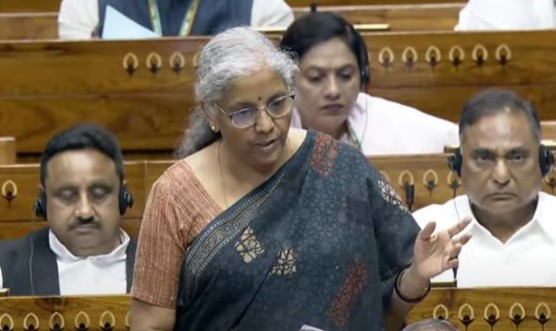July 22, 2024: In a highly anticipated prelude to the Union Budget 2024, Finance Minister Nirmala Sitharaman has presented the Economic Survey 2023-24 in Parliament, marking the commencement of the Monsoon Session. This annual document, prepared under the stewardship of Chief Economic Advisor Dr V Anantha Nageswaran, offers a comprehensive overview of India’s economic performance over the past fiscal year. Here’s a detailed look at the key aspects and implications of this crucial report.
Overview of the Economic Survey
The Economic Survey serves as a vital tool for policymakers, economists, and citizens alike, providing a detailed analysis of India’s economic landscape. It outlines the achievements and challenges faced by the economy, summarizes the outcomes of major government initiatives, and forecasts short to medium-term economic prospects. This year’s survey, despite its proximity to the Union Budget presentation, does not impose binding constraints on the budget formulation but sets the stage by highlighting critical economic indicators and policy directions.
Monsoon Session 2024: Nirmala Sitharaman Presents Highlights and Insights of Economic Survey 2024
- Growth Outlook: The survey projects India’s economy to grow at a rate of 6.5-7% in the fiscal year 2024-25, underscoring domestic growth drivers amidst global economic uncertainties.
- Sectoral Analysis: It emphasizes a positive outlook for India’s financial sector, buoyed by robust performance indicators and strategic policy interventions.
- Policy Initiatives: Highlighting the government’s focus on economic reform, the survey notes the decriminalization of 63 offences to enhance Ease of Doing Business, fostering a conducive environment for corporate governance and entrepreneurship.
- Public Access: The Economic Survey is accessible to the public through the official government website, ‘www.indiabudget.gov.in/economicsurvey’, following its presentation in Parliament. This availability ensures transparency and facilitates informed public discourse on economic policies and their implications.
Historical Context and Format
The Economic Survey underwent a format change in the 2022-23 edition, transitioning to a consolidated single-volume presentation. This structural refinement coincided with changes in leadership within the Chief Economic Advisor’s office, reinforcing its role as a seminal document guiding economic policy formulation.
Political and Economic Implications
Against the backdrop of a vibrant parliamentary session, the Economic Survey sets the tone for deliberations on crucial legislative agendas and budgetary allocations. It underscores the government’s commitment to sustainable economic growth, sectoral resilience, and inclusive development initiatives.
As India navigates through dynamic global economic landscapes, the Economic Survey 2023-24 assumes critical significance in shaping policy frameworks and strategic interventions. Its insights into growth projections, sectoral dynamics, and policy imperatives will steer national discourse and decision-making processes in the months ahead, positioning India on a trajectory of resilience and growth amidst evolving global challenges.
In essence, the Economic Survey serves as a compass guiding stakeholders across sectors towards sustainable economic prosperity, encapsulating India’s journey towards a resilient and robust economic future.






